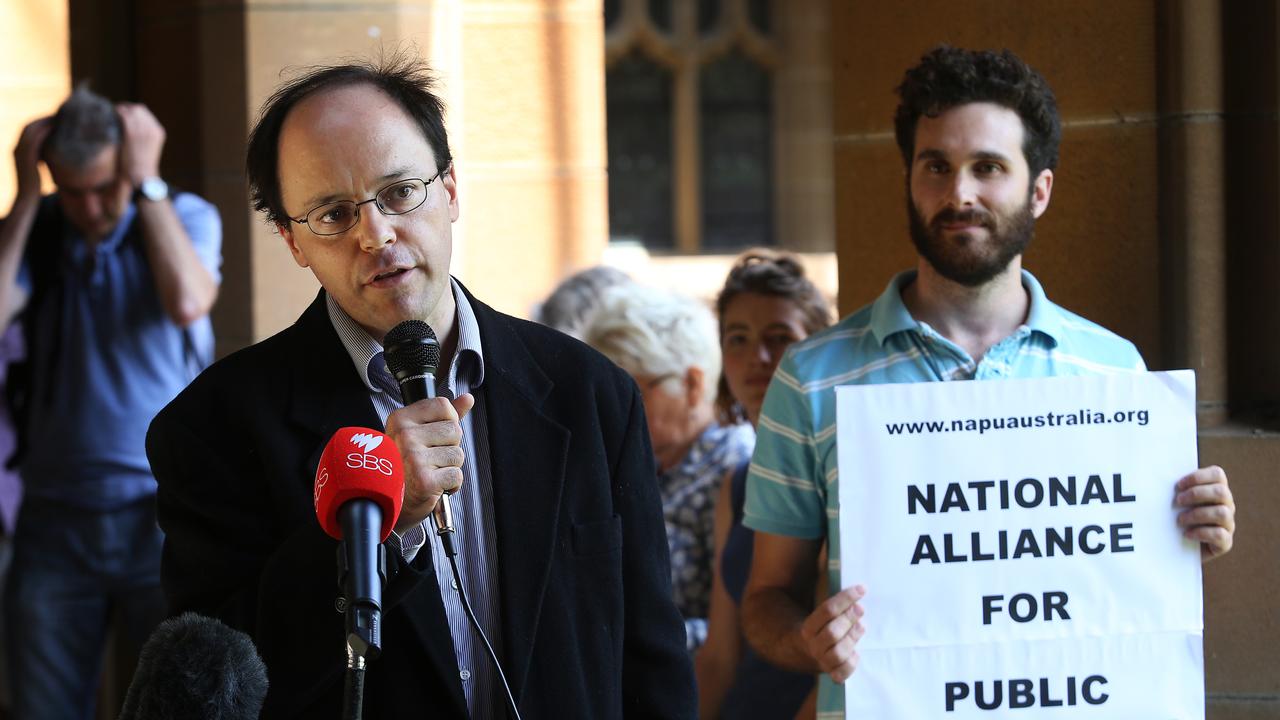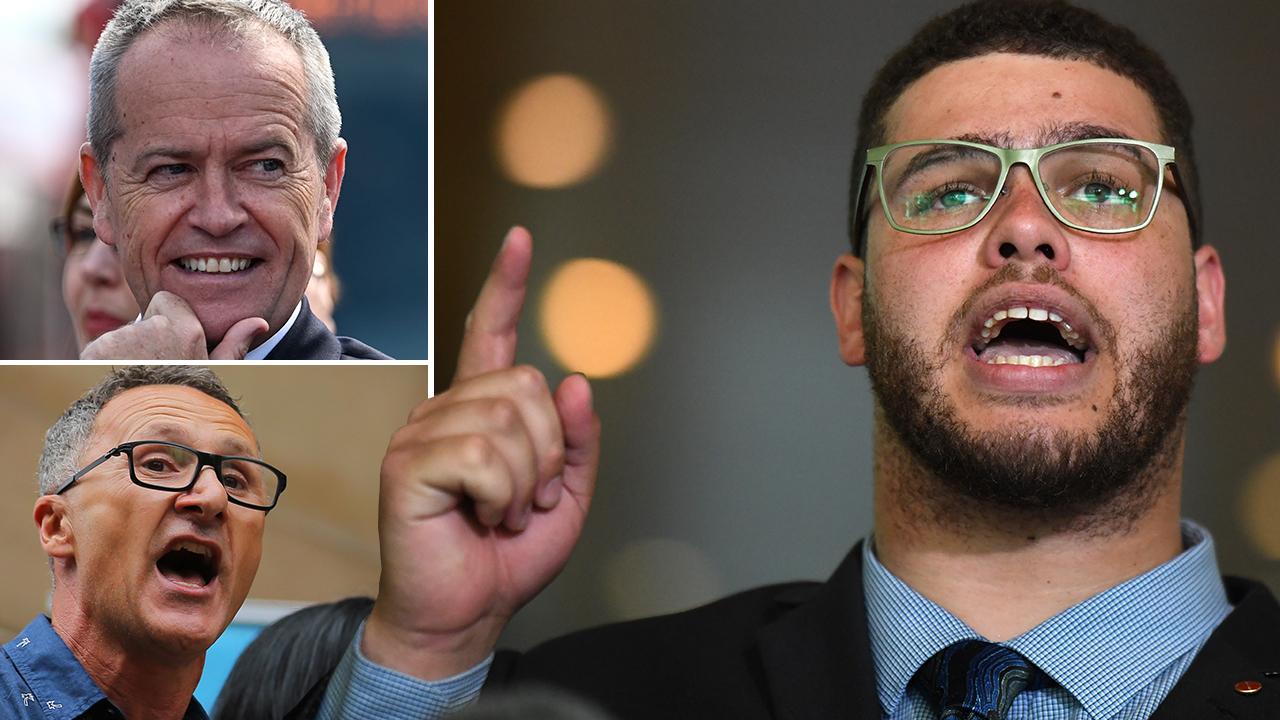
It is National Reconciliation Week, that time of the year intended to build “positive, respectful relationships between the broader Australian community and Aboriginal and Torres Strait Islander peoples for the benefit of all Australians”. The aspiration is noble, but is this process a two-way street?
Prime Minister Malcolm Turnbull no doubt thought he was doing the right thing last week when he tweeted: “On Sorry Day we acknowledge the grief, pain and loss. But we also acknowledge the resilience and determination of our First Australians.”
On Sorry Day we acknowledge the grief, pain and loss. But we also acknowledge the resilience and determination of our First Australians. https://t.co/R50luJYRd8
— Malcolm Turnbull (@TurnbullMalcolm) May 26, 2018
Proving there is always some grievance-monger who will deliberately skew the author’s words to find offence, Cobble Cobble woman Megan Davis angrily responded. Turnbull’s use of the possessive pronoun “our” in reference to the First Australians, tweeted the pro vice chancellor of the University of NSW and National Rugby League commissioner, implied “ownership”.
This is what we've become as a nation. Awesome at gesture politics, absent in reform. And the use of the word "our" First Australians; possessive pronoun indicating ownership? He thinks he knows best; sums up govt policy and his bureaucrats. pic.twitter.com/ooMlCZ7KXa
— Prof M Davis [-0-] (@mdavisqlder) May 26, 2018
This, from an academic described as “one of the nation’s leading public constitutional lawyers”? To argue this was evidence of Turnbull’s regarding indigenous people as property is risible.
No doubt Victoria’s Koorie Youth Council executive member Dtarneen Onus-Williams was for building “positive, respectful relationships” when she spoke at an Australia Day protest rally this year. “We have not organised this to change the date,” she shouted. “We have organised this to abolish Australia Day because f..k Australia. F..k Australia, I hope it f..king burns to the ground.’’ She later claimed that she was speaking metaphorically.
Former chair of the Australian Government’s Indigenous Advisory Council and Bundjalung man Warren Mundine aptly described the situation. “The serious question here is why is the government funding these groups and these organisations when the people involved are haters who have no scruples about taking taxpayers’ money and then spitting in their faces,” he said.
On the subject of taking taxpayers’ money and spitting in their faces, you may have heard of indigenous woman and comedian Nakkiah Lui’s latest play Blackie Blackie Brown: The Traditional Owner of Death, which debuted recently. The main character is an indigenous archaeologist, Dr Jacqueline Black, who is possessed by the spirit of her great-great-grandmother and then transformed into an avenger. “Her mission: kill all the descendants of the men who massacred her ancestors,” announced the Malthouse Theatre. “White people, watch out. This isn’t about forgiveness. And it’s not about reconciliation.”
“With breakout newcomer Megan Wilding in the title role, and the ever-hilarious Ash Flanders playing every single white person she needs to kill, you’ll be laughing out loud one second, squirming in your seat the next.” Sounds like a hoot, doesn’t it? The Australia Council and the NSW Government’s Create NSW provided $40,000 and $26,509 respectively in grants for the play. When news.com.au journalist Frank Chung detailed this, Lui accused him of “race hate fear mongering”.
To kill the DESCENDANTS of White people... doesnt mean theyre White. Youve made the assumption its White people because Im Aboriginal. Thats total racism. Maybe interview & not rely on google when writing an article. Especially when your angle is based on race hate fear mongering https://t.co/OU6tN9y60j
— Nakkiah Lui (@nakkiahlui) May 1, 2018
Now that indignant reaction is indeed comedy. Like many a minority social commentator, Lui relishes in making sneering references to white people, but is quick to accuse others of racism when called out.
My main concern in Indigenous Affairs atm is our use of the saying 'White Dogs'. Dogs are innocent, sweet and loyal. Let's not insult dogs.
— Nakkiah Lui (@nakkiahlui) May 9, 2016
Citing massacres of indigenous peoples by Europeans, and the forced removal of Aboriginal children as a consequence of government policy, Reconciliation Australia noted with concern this year “about a third of Australians are yet to accept fundamental aspects of our shared history and the treatment of First Peoples.” Without doubt traditionally there has been a dearth of history taught in that respect, and historically many Australians have either ignored or overlooked the atrocities that were committed. With that in mind, the theme for this year’s National Reconciliation Week is ‘Don’t keep history a mystery’.
Yet too often this adjusted historical portrayal has been ‘corrected’ to the extent there is a reverse-whitewashing. Consequently, the indigenous population that existed prior to European settlement — call it invasion if you will — is depicted as a utopia. If you think that is an exaggeration, consider an excerpt this month from the Newcastle Star which featured Cherie Johnson, a Gamilaroi and Weilwan woman.
“We lived a camping lifestyle always,” said Johnson, reflecting on the supposed way of life prior to the arrival of Europeans. “Always learning, always teaching, always exercising, eating a paleo style diet ... walking 10-15km a day, swimming, climbing trees.” How is that for a rosy description? Presumably pre-1788 Australia was just one big happy health farm. Ironically, Johnson added that non-indigenous Australians should support Aboriginal and Torres Strait Islander people by not denying their history.
As Quadrant detailed in 2013, early British and French explorers were appalled at the violence inflicted on indigenous women by their menfolk. “Women are often sadly ill-treated by their husbands and friends … they are frequently beaten about the head, with waddies, in the most dreadful manner, or speared in the limbs for the most trivial offences,” noted nineteenth century explorer Edward John Eyre.
Writing for Meanjin in 2015, author and indigenous woman Melissa Lucashenko made an eye-raising claim. “Aborigines invented democracy,” she said. “As a result, the many First Nations here were able to enjoy millennia of what Bunurong writer Bruce Pascoe has called ‘the Great Australian Peace’.” She also claims that Captain James Cook “dropped anchor in 1788”, but we’ll put that down to a typo. In any event Lucashenko is in good company: only last week Greens senator Sarah Hanson-Young issued a press release referring to Australia Day as the date of “Cook’s landing at Botany Bay”.

Lucashenko’s claim that indigenous people “lived largely at peace with their neighbours” is not sustainable. She concedes there was conflict, yet maintains this did not amount to war, but “skirmishes”. These disputes “were managed in regulated ways by the recognised authorities under the ‘rule of law not men’,” she writes. “And this massive achievement, this Aboriginal philosophy of structured peace, prevailed until colonisation occurred.”
Australia’s most pre-eminent historian, Geoffrey Blainey, disputes this. “Casualties from warfare in Aboriginal times were heavy,” he said in 2016, “though it’s politically incorrect to say that in certain influential circles.” William Buckley, an early nineteenth century convict escapee who spent 30 years living with Port Phillip tribes, noted repeated clashes. In one account the Watouronga of Geelong “destroyed without mercy men, women and children.”
These brutal depictions are corroborated by the studies of paleopathologist Stephen Webb. In 1995, he published his findings into his analysis of the skeletal remains of 4500 indigenous people, many of which predated the arrival of Europeans. His study revealed that indigenous women were far more likely than men to have suffered skull fractures, the damage being consistent with their being attacked from behind.
And yet these facts are played down or overlooked entirely. “Unfortunately Blainey has been unable to let go of his fixation with the supposed violence of Aboriginal life,” wrote academic John Maynard in 2015. Speaking in 2003, his fellow professor and indigenous activist Mick Dodson claimed “We have no cultural traditions based on humiliation, degradation and violation. Most of the violence, if not all, that Aboriginal communities are experiencing today are not part of Aboriginal tradition or culture.” These sweeping assertions are remarkable. Can you think of any other race throughout history where humiliation, degradation, and violation were not part of culture?
In 2007, academic and historian Susanna de Vries revealed that publishers had during the 1980s and 1990s revised and in some cases removed accounts of pioneer women in respect to colonial life so as to avoid offending indigenous people. These accounts included tribal warfare, infanticide, and the abduction and rape of women. Describing this as a “benign censorship”, she warned of a “taboo which is based on guilt.”
To address this taboo is to invite condemnation by indigenous activists and their numerous white supporters. To dispute these romanticised reconstructions is, in the sneering words of Lucashenko, to analyse indigenous history through “the shit-coloured glasses of longstanding Australian prejudice”.
By acquiescing in this sanitised version of history, we are complicit. When we speak of the disproportionately high rates of violence in remote indigenous communities, we contextualise this in patronising terms such as ‘colonisation’. We acknowledge the richness of indigenous culture, yet we obtusely deny or minimise its links with violence, thus condoning it.
If there is one commonality we should acknowledge in the spirit of reconciliation, it is the tendency of indigenous and non-indigenous Australians alike to whitewash their respective histories.




To join the conversation, please log in. Don't have an account? Register
Join the conversation, you are commenting as Logout